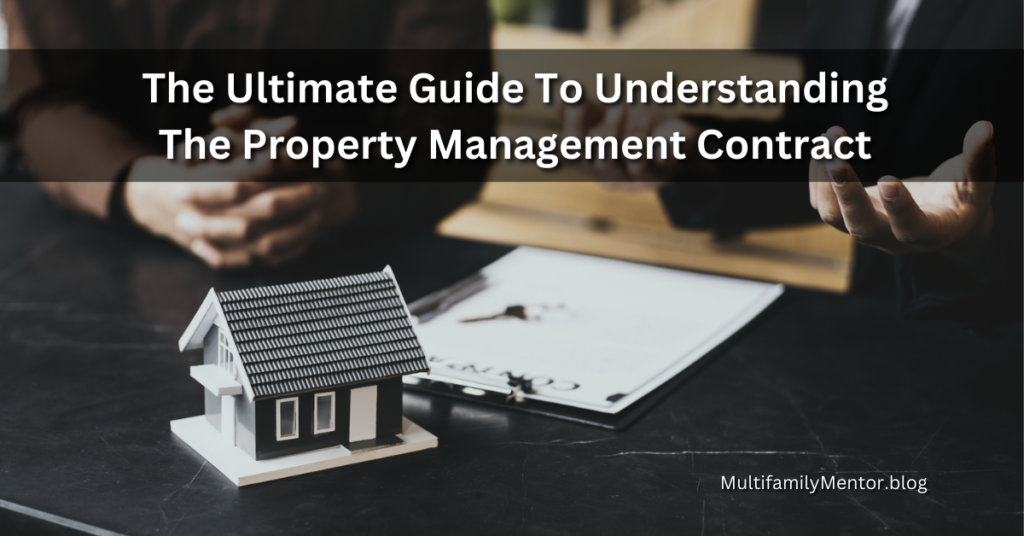Are you confused about the property management contract? Our guide covers everything you need to know, from fees and charges to legal obligations. Don't sign anything without reading our guide first!
Executive Summary
The property management contract is a legally binding agreement between a property owner and a property management company that defines the responsibilities of both parties. It outlines the property management services, the fees charged, and the duration of the agreement. Before signing a contract, it is crucial to understand the terms and conditions to avoid any misunderstandings or legal disputes in the future.
Introduction
The relationship between a property owner and a property management company is critical in ensuring the smooth running of rental properties. The property management contract outlines the expectations and responsibilities of both parties, including the management of the property, rent collection, and tenant screening. A well-written and comprehensive property management contract is essential in avoiding misunderstandings and legal disputes.
Property Management Services
The property management services outlined in the contract are the primary services the management company provides to the property owner. It is essential to have a clear understanding of these services to avoid confusion and legal disputes. Some of the services that may be included in the property management contract are:
- Rent collection
- Tenant screening
- Property maintenance and repairs
- Lease agreement preparation and enforcement
- Marketing and advertising of the property
- Accounting and financial reporting
Fees and Charges
The fees and charges outlined in the property management contract are a critical aspect of the agreement. Property management fees can vary from one company to another, and it is essential to understand the costs involved to make an informed decision. Some of the fees and charges that may be included in the property management contract are:
- Management fee: This is a percentage of the rent collected, typically ranging from 5% to 10%.
- Leasing fee: This is a fee charged when a new tenant is found, typically equal to one month's rent.
- Maintenance fee: This fee is charged when repairs or maintenance are needed and is usually a percentage of the cost of the repair.
- Late payment fee: This fee is charged when the tenant fails to pay rent on time.
- Early termination fee: This fee is charged when the property owner terminates the contract before the agreed-upon duration.
Duration of the Contract
The duration of the property management contract is a critical aspect to consider before signing. It is essential to understand the terms and conditions of the agreement and the duration of the contract. Some of the common durations for property management contracts are:
- Month-to-month: This agreement can be terminated by either party with a notice period of 30 days.
- Fixed-term: This agreement is for a specific duration, usually one year, and cannot be terminated before the end of the term without penalties.
- Automatic renewal: This agreement is automatically renewed at the end of the term unless either party provides notice to terminate.
Termination Clause
The termination clause is an essential aspect of the property management contract. It outlines the conditions under which either party can terminate the agreement. It is crucial to understand the terms and conditions of the termination clause to avoid legal disputes. Some of the common reasons for termination are:
- Breach of contract by either party
- Failure to pay fees or charges
- Failure to maintain the property
- Failure to comply with laws and regulations
Legal Obligations
A property management contract must comply with the laws and regulations governing property management. It is essential to ensure that the contract includes clauses that comply with federal, state, and local laws. Some of the legal obligations that may be included in the property management contract are:
- Fair Housing Laws: This law prohibits discrimination based on race, gender, religion, nationality, or disability.
- Landlord-Tenant Laws: These laws outline the rights and responsibilities of both parties, including the eviction process, security deposits, and lease termination.
- Real Estate Laws: These laws govern the transfer of ownership, sale of property, and licensing of real estate agents.
Conclusion
In conclusion, understanding the property management contract is crucial in ensuring a successful and stress-free rental property experience. The property management contract outlines the expectations and responsibilities of both parties, including property management services, fees, duration of the contract, termination clause, and legal obligations. A well-written and comprehensive property management contract is critical in avoiding misunderstandings and legal disputes.

